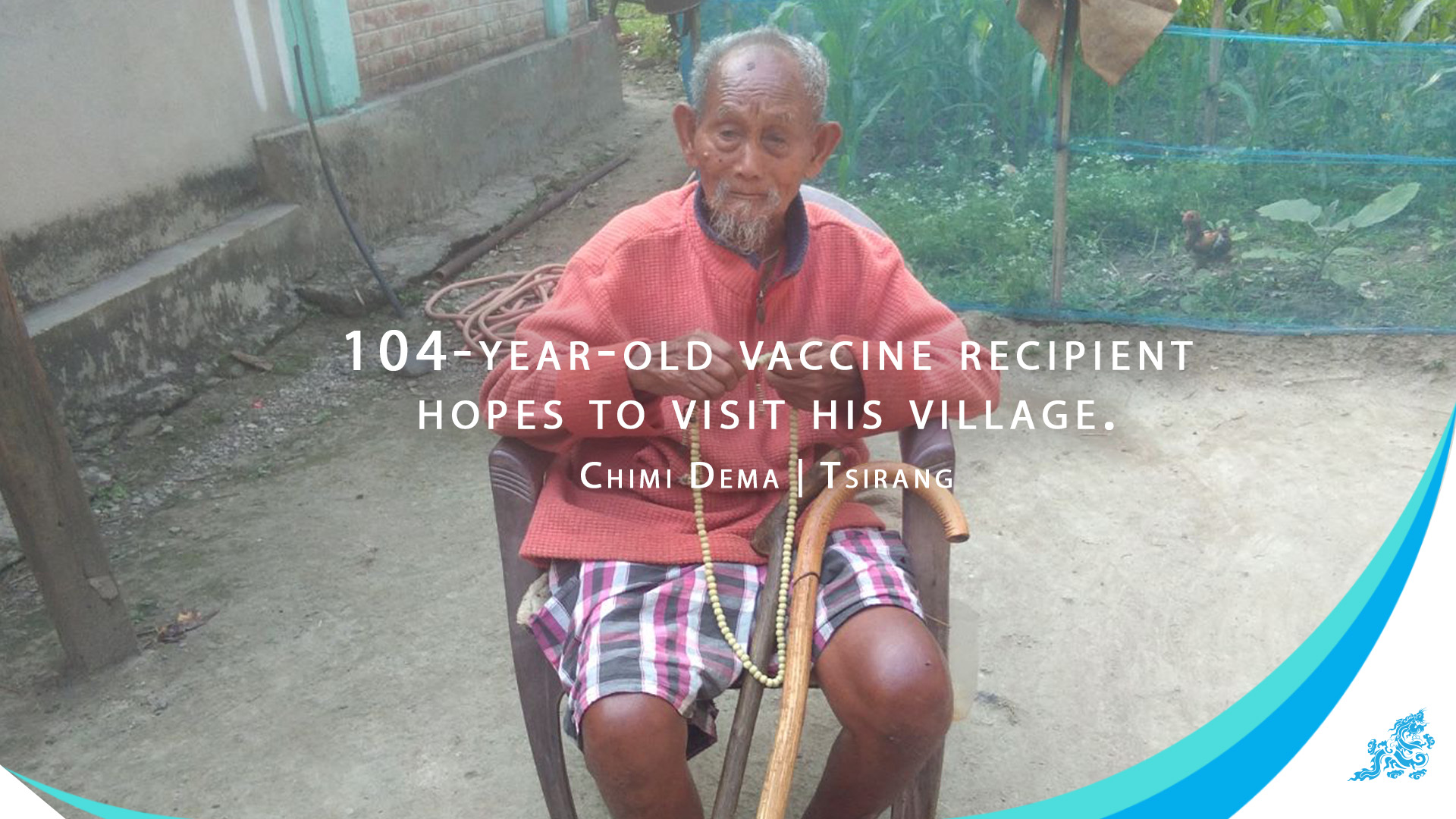
Dorji Penjor was the oldest person to receive the vaccine in the country
Chimi Dema | Tsirang
Every year, Dorji Penjor Drukpa, a retired forester in Lhamoidzingkha, Dagana visits his home in Punakha to meet his wife and children. He could not do so last year because of the pandemic.
When the government initiated nationwide vaccination programme last week, Dorji Penjor eagerly came forward to take the vaccine shot in the hope of visiting his home without risk.
In order to ensure that every eligible person gets vaccinated, the Ministry of Health adopted a home-based vaccination strategy for those people who have mobility issues and elderly population who cannot make it to the vaccination sites.
Aged 104 years, Dorji Penjor was the oldest person to receive the vaccine jab in the country. He got the first dose of the Covishield vaccine on April 3 through a door-to-door vaccination service.
Speaking to Kuensel, his eldest son, Migma Drukpa, said that his father decided to take the vaccine to protect him and to curb the risk of transmitting the virus to others. “Being in the high-risk zone, we could not go to the village last.
When Dorji Penjor heard about the arrival vaccine from India and the mass vaccination drive in the country, he kept asking how soon would the shots be administered. For him, it was a long wait. He wanted to go to Punakha desperately.
“I miss my wife and daughter. I haven’t seen them for long,” said Dorji Penjor.
Were you worried about side effects of the vaccine?
Dorji Penjor said he was but he was determined to take the shot. He did not experience any side effect and is fit and fine.
Dorji Penjor could have gone to Punakha to meet his wife and son if he wanted to. But the seven-day mandatory quarantine would be difficult for him.
Migma Drukpa said that his father would have found quarantine very challenging.
In 2002, Dorji Penjor suffered a stroke due to hypertension. Even after the recovery, Migma said that his father still had a problem with movement. He has been on medication since.
“We hoped that the mandatory quarantine for travellers from high-risk would be lifted after the vaccination,” Migma said. “Looks like my father won’t be able to go to Punakha for some time.”
The week-long vaccination programme covered more than 90 percent of the eligible population in Dagana.
Of the 17,583 registered populations, about 16,000 including a few pregnant women and lactating mothers were vaccinated.

